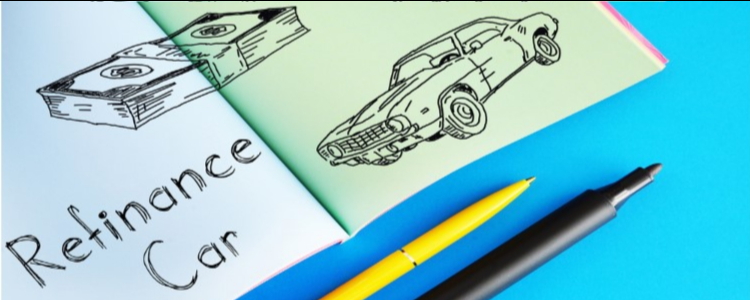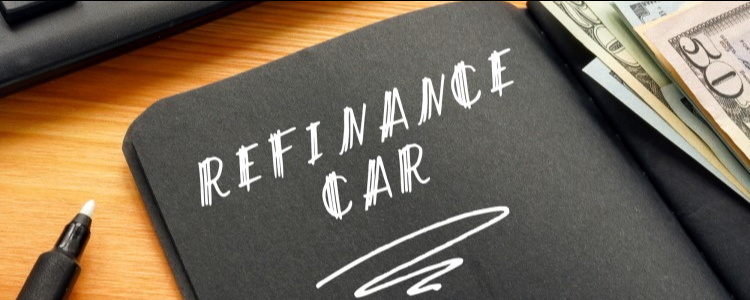In a few fringe cases, it’s possible to refinance your vehicle immediately after purchase. However, if you don’t fall under a special case, then you have to wait. Here’s what we know about refinancing requirements on auto loans.

Can You Refinance Your Car the Same Day You Buy It?
Can I Refinance My Car Right Away?
If you have great or near-perfect credit, you may be able to qualify for refinancing soon after, or the same day, as you purchased a vehicle.
It’s possible that your loan contract has a prepayment penalty in it if you complete the loan before its scheduled due date, but those aren’t so common anymore. We recommended contacting your lender and reading through your loan contract to double-check if there are prepayment fees for paying off your loan early.
However, if your credit score is worse for wear, you may have to wait to refinance your car until you’ve had the loan for at least 12 months.
Many refinancing lenders require that your credit score has improved during your current loan term or that you have good credit, and that you’ve maintained a good payment history for one year. If your credit history hasn’t been great historically, then a refinancing lender may require that you keep your loan as is until you’ve proven your ability to repay it.
Requirements of Car Refinancing
Refinancing lenders, as a general rule, want to refinance a car for its actual value. Remember that refinancing involves paying off your original loan to replace it with another one, and a lender may not want to pay out more than it’s worth.
Refinancing lenders don’t usually just rely on your credit score to see if you qualify. Other typical refinancing requirements include:
- Your vehicle is less than 10 years old
- The car has less than 100,000 miles on it
- The vehicle has equity (car is worth more than the loan balance)
Even if you have the credit score to refinance your car soon after driving it off a dealer’s lot, you may not qualify if the vehicle doesn’t have equity. Many brand new vehicles experience rapid depreciation (loss of value) in the first few years of ownership – which could make the loan balance higher than its value.
If your vehicle doesn’t have equity and your credit score isn’t great, then refinancing may not be an option right away. To increase your odds of qualifying for refinancing, it may be worth it to pay down your loan as quickly as you can to get into an equity position, and make all your car payments on time to improve your credit score.
How to Refinance the Right Way
Most borrowers that refinance are looking to get a lower car payment. The majority of others are looking to reduce their interest rate. Refinancing can be a great way for borrowers to save money on their car loan – both monthly and long term.
However, you may have the option of just extending your loan term to get a lower payment, but be advised, this means paying more for the vehicle.
Nearly every auto loan out there today uses a simple interest formula. This means your loan’s balance and interest rate determine how much interest you pay the lender over time. Simple interest means your interest charges accrue daily, and the higher your loan balance and longer your term, the more you pay.
If you’re looking to save your car loan, then trying for a lower interest rate is the way to go instead of just extending your loan term.
On the Lookout for Auto Finance Resources?
Here at Auto Credit Express, we want to assist bad credit borrowers in everything auto finance. If you’re in need of refinancing connections, visit our resource center.
If refinancing isn’t an option for you right now, then it may be time to explore other auto loan options. Over the last 20 years, we’ve created a nationwide network of special finance dealerships that assist borrowers with credit challenges. Complete our free auto loan request form and we’ll look for a dealer in your local area at no cost and no obligation.

Senior Auto Financing Editor
Suggested Posts For You
Receive Free Updates
Get the latest credit tips, resources and advice delivered straight to your inbox.













